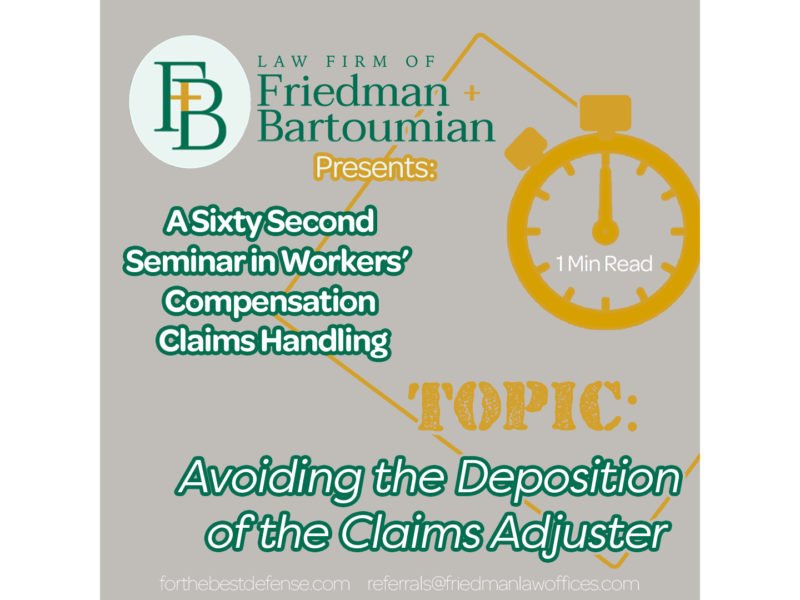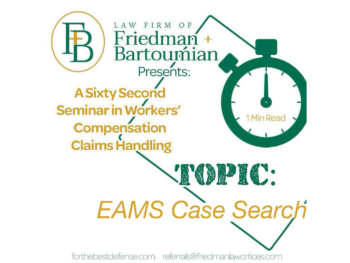When a dispute arises between an Applicant’s Attorney (AA) and a claims adjuster (even if trivial in the grand scheme of things), AA may issue a notice of deposition to the adjuster. While we would like to believe that such notices are not issued out of spite or harassment we can only speculate. One thing is certain though, an AA’s attempt to depose an adjuster is tantamount to a declaration of war. That’s because the typical purported purpose for the adjuster’s deposition is the gathering of evidence for the eventual filing of a petition for penalty. Today’s blog discusse strategies a claims adjuster can deploy when a deposition notice shows up in their mailbox!
- At the risk of being accused of self-service, the first action an adjuster should take is to retain legal counsel, if not already represented, and object to the deposition on the grounds of harassment. A motion to stay the deposition and to quash the notice should be filed, but only after defense counsel first confers with AA as required by Code of Civil Procedure 2016.040 to informally resolve the issue. Also, per CCP 2025.410(c) once the motion to quash is filed the deposition is automatically stayed until the issue is resolved by the WCJ, a process that can take several months, certainly.
- The next step is to note where the deposition is to occur. Usually, depositions are scheduled at applicant attorney’s office to make it as inconvenient and troublesome as possible for the claims adjuster. Proceed to calculate the distance from the claims adjuster’s residence to the attorney’s office where the depo is to be held. If the one-way distance is greater than 75 miles, generally, the notice is unenforceable under CCP 2025.250(a) which limits depositions to 75 miles from the deponent’s residence. There is, however, one exception. If the deposition is held in the same county where the workers’ comp action is being litigated, then the one-way mileage limit from the adjuster’s residence is increased to 150 miles.
- If the deposition is held for the purposes of gathering information related to a yet to be filed penalty, then an objection can be raised to all questions pertaining to that issue on the grounds of relevancy, and the adjuster need not respond to any such questions.
Of course, there are no guarantees as to the foregoing; however, given the “stakes” typically associated with the deposition of an adjuster, when a depo notice is received seeking just that, the prudent claims adjuster must proceed diligently and with caution. An unrepresented claims representative should immediately retain legal counsel. We here at the Law Firm of Friedman + Bartoumian stand ready to assist our clients which such legal need.



 Subpoenas, Medical Releases and Public Records: A Sixty-Second Seminar in Workers’ Compensation Claims Handling
Subpoenas, Medical Releases and Public Records: A Sixty-Second Seminar in Workers’ Compensation Claims Handling
Leave a Reply